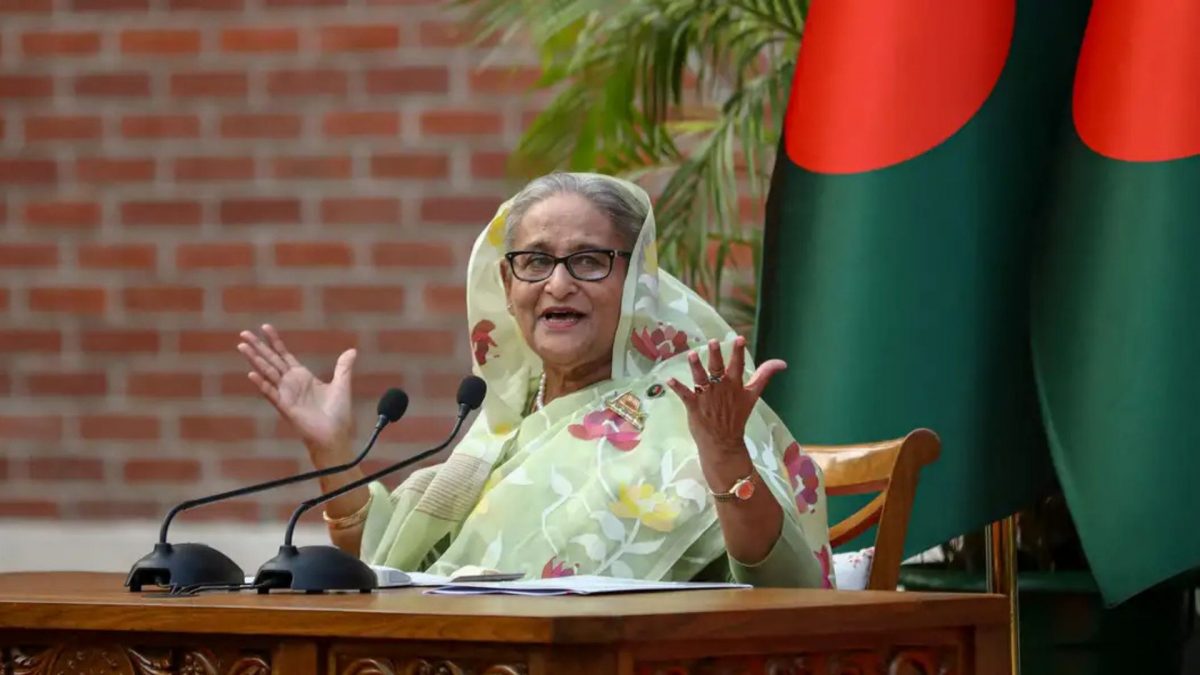) |
|
The political landscape of Bangladesh is currently defined by the precarious situation of the Awami League, the party formerly led by Prime Minister Sheikh Hasina. Five months after being forced to flee the country in August 2024, Hasina and her party are grappling with what many describe as their most significant political crisis in decades. Thousands of party workers are in hiding, their properties looted or destroyed, creating a climate of fear and uncertainty. The article paints a picture of a party in disarray, with a leadership structure significantly weakened by the events of the past five months. A senior party official paints a stark image: one-third of their leaders are in jail, another third are seeking refuge abroad, and the remaining third are evading arrest within Bangladesh itself. This fragmentation undermines the party's ability to organize effectively and present a united front against the current government.
The exodus of Awami League leaders is directly linked to the violence that erupted following Hasina's ouster. Homes, offices, and businesses owned by party members were systematically targeted, leaving many destitute and without the means to rebuild their lives. The destruction extends beyond material possessions; the legal repercussions are equally devastating. A former three-term MP described the complete lack of opportunity to rebuild anything, highlighting the systematic dismantling of the party's infrastructure and resources. Former Cabinet Ministers and MPs, now in hiding, face a barrage of legal notices, piling up daily with accusations against senior leaders. This relentless legal pursuit aims to eliminate the party’s capacity to function. Nahim Razzaq, a 44-year-old MP, captures the desperation of the situation, explaining that the lack of judicial rights, bail denials, and the threat of immediate arrest upon return effectively silence dissent. The party expresses a willingness to engage in dialogue regarding elections, yet the current political climate renders such discussions impossible.
Despite the bleak outlook, the Awami League is not entirely incapacitated. Remarkably, despite the dispersal of its leadership, the party maintains a level of communication and organization. Leaders utilize encrypted WhatsApp groups, facilitating communication amongst 30-40 members in each group. This system, alongside daily interactions with party workers through other means, allows updates to be circulated, district by district, ensuring some level of contact is maintained. AFM Bahauddin Nasim, a former MP, underscores this resilience, stating that even in hiding, he continues to receive hundreds of calls daily from workers, underscoring the persistence of the party's connections to the grassroots level. Sheikh Hasina herself remains a critical link. Referred to as “Apa” (older sister) within the party, she utilizes virtual platforms to provide guidance and maintain morale. Her regular engagement with leaders via WhatsApp conveys a message of optimism and resilience, bolstering the spirits of those in hiding and exile.
The party’s hope for resurgence hinges on a symbolic act and international support. There are indications that the Awami League is strategizing a return to Bangladesh on March 26th, Independence Day, a date chosen for its symbolic significance. This daring move might aim to galvanize support and potentially place pressure on the interim government. Furthermore, the Awami League is actively seeking international support, looking to India in particular to help mobilize international opinion in their favor. This external pressure could play a crucial role in influencing the political dynamics within Bangladesh and potentially restoring a more conducive environment for political action. The interim government, led by Muhammad Yunus, has taken a firm stance against the Awami League, freezing party assets and rejecting bail applications for leaders. The continued violence and the alleged illicit flow of weapons into the country add to the complexity of the situation, making a swift return to stability unlikely.
Despite the overwhelming challenges, the Awami League harbors a persistent sense of hope. The party's organizational structure, though severely tested, remains intact through the communication networks that link leaders to workers across Bangladesh's 70-odd political districts. The restoration of the rule of law is presented as a crucial condition for any substantial political resurgence. Conversations continue within the party, focusing on ways to revitalize their political strength and plan for future participation in the Bangladeshi political arena. The hope for a comeback is far from guaranteed, but the Awami League's determination to persevere, through communication, strategic planning, and the pursuit of international support, suggests that their influence on Bangladeshi politics is not yet extinguished.
Source: Can Sheikh Hasina make a comeback in Bangladesh? Report says Awami League leaders hiding but hopeful
